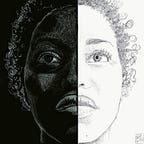Buried Leads: Missing & Murdered Indigenous Women (MMIW)
Within the United States, social patterns of interpersonal and institutional violence are unfortunate realities. Like any disease, violence permeates communities internally and externally. Missing and Murdered Indigenous Women (MMIW) are often ignored or unnoticed when discussing the need for prevention activities and community education.
Some speculate that the low radar the issue has on the national social and political stage is due to their marginalization and native status. I believe that women of color are particularly vulnerable to racist and sex-based violence that can lead to a higher likelihood of death because of demographic-based violence.
Cities and other government bodies (Seattle, Portland, Fargo, Riverton) are slowly responding to the epidemic of missing and murdered indigenous women by naming May 5th as a day of solidarity. Efforts were made across the country to commemorate this day as the National Day of Awareness for Missing and Murdered Native Women and Girls.
The destructive colonial and capitalistic dynamics that indigenous women experience are also ignited by the rampant amount of displacement experiences from social and environmental injustice.
Researchers say much of this places 71% of indigenous girls and women in urban centers.
The Urban Indian Health Institute (UIHI) conducted research (see above) that started in 2017 looking at data that municipalities across the country had on murdered and missing indigenous women and girls. Below you will find an overview of the highest number of cases by region.
Strategic thinkers understand the importance of data collection regarding the community and institutional harm marginalized groups experience.
The research efforts led by UIHI and groups like the Sovereign Bodies Institute are bringing light to an issue that is leaving a stain on the United States. A smudge of inaction and passivity for the lives of indigenous women and girls.
Sovereign Bodies Institute (SBI) builds on Indigenous traditions of data gathering and knowledge transfer to create, disseminate, and put into action research on gender and sexual violence against Indigenous people.
According to their website — SBI is committed to:
-conducting, supporting, and mobilizing culturally-informed and community-engaged research on gender and sexual violence against Indigenous people
-uplifting Indigenous researchers, knowledge keepers, and data visualists in their work to research and disseminate data on gender and sexual violence against Indigenous people
-empowering Indigenous communities and nations to continue their work to end gender and sexual violence against Indigenous people, through data-driven partnerships that enhance research efforts, develop best practices, and transform data to action to protect and heal their peoples.
The disappearances and violence against indigenous women and girls, including their invisibility before the law, is a direct result of colonialism and a cultural practice that continues today. Powerful men and women intentionally designed institutions and systems meant to rob indigenous people of their identity and voice for time immemorial.
According to the Coalition to Stop Violence Against Native Women, 4 out of 5 native women are victims of sexual violence.
These realities are precisely why the Universal Declaration of Human Rights was necessary and ultimately sanctioned as a tool to measure how institutions and communities enact justice.
While it can be reasoned that the UDHR in its entirety is applicable, I recognize the following Articles as fundamentally crucial to righting the injustice currently experienced by indigenous women and girls:
Indigenous women and girls are “human beings…born free and equal in dignity and rights” (Article 1) and are “entitled to all the rights and freedoms outlined in [UDHR], without distinction of any kind, such as race, color, sex, language, religion, political or other opinion, national or social origin, property, birth or other status. Furthermore, no distinction shall be made based on the political, jurisdictional or international status of the country or territory to which a person belongs, whether it be independent, trust, non-self-governing or under any other limitation of sovereignty” (Article 2).
Indigenous women and girls have “the right to life, liberty, and security of person” (Article 3).
Indigenous women and girls “shall [not] be held in slavery or servitude; slavery and the slave trade shall be prohibited in all their forms” (Article 4).
Indigenous women and girls “shall [not] be subjected to torture or to cruel, inhuman or degrading treatment or punishment” (Article 5).
Indigenous women and girls have “the right to recognition everywhere as a person before the law” (Article 6).
Indigenous women and girls have “the right to a nationality; [they] shall [not] be arbitrarily deprived of [their] nationality” (Article 15).
Indigenous women and girls have “the right to freedom of thought, conscience and religion; this right includes freedom to change his religion or belief, and freedom, either alone or in community with others and in public or private, to manifest his religion or belief in teaching, practice, worship and observance” (Article 18).
According to the Sovereign Bodies Institute, “the current data available provides context that illustrates the necessity of community engagement in increasing awareness and addressing all types of violence against Indigenous women. When compared to national averages Indigenous women are:
• 2 1⁄2 times more likely to be assaulted
• 2 times more likely to be stalked
• 5 times more likely to experience interracial violence
• 10 times more likely to be murdered (on some reservations)
• More than 1 in 3 (or 34.1 %) Indigenous women will be raped in her lifetime
6 in 10 Indigenous women will be physically assaulted.”
Indigenous women and girls have a right to individual safety and liberty but also the need to explore ways of being a country that centers collective liberation for all people, regardless of our differences.
You can reach me at drcryscrain@gmail.com.
